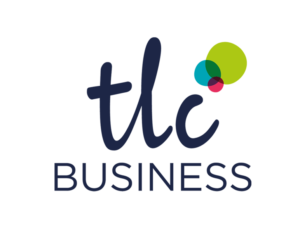Is PPC a good idea? The pros and cons of PPC
Deciding whether to invest in Pay-Per-Click, known as PPC advertising, is a big decision!
To help you decide whether to take the plunge, we’ve put together the key advantages and disadvantages of using PPC.
But first, you might be wondering what PPC is, or what it involves:
What is PPC?
PPC (Pay-Per-Click) is a popular form of online advertising, which allows businesses to display their ad on search engines or websites.
There are various platforms available for PPC advertising, but one of the most well-known platforms is Google Ads.
How PPC works
Businesses looking to advertise, bid on specific keywords or target audiences, relevant to their market, to boost their online presence and drive their web traffic.
Then anytime someone searches for those keywords, the ad will appear at the top or the bottom of the search results page, marked ‘Ad’.
Advertisers pay a fee each time one of their ads is clicked on by a user.

Pros of PPC
1) Targeted advertising
PPC allows you to create an effective ad campaign by targeting relevant keywords, demographics, locations and much more.
PPC is a great way to reach people who are most interested in what you have to offer, so you can get the best results for your business.
2) Immediate results
Unlike SEO (Search Engine Optimisation), which can take months to show improvements in search engine rankings, PPC is instant, giving you immediate visibility and drives traffic to your website.
Once your PPC campaigns are set up, you can start generating clicks and conversions straight away.
3) Cost control
With cost-effective PPC, you have total control over your advertising budget. You set the maximum amount you’re willing to pay for a click, and you only pay when someone clicks on your ad. This allows you to adjust your budget as needed, to get the right results for your company.
4) Easy to measure success
PPC platforms make it easy to monitor impressions, clicks and conversions, so you can track your campaign and achieve success.
5) Brand exposure
Having your ad present for key searches will mean even if users don’t click on your ads, they can still see your brand name, messaging and offerings. This exposure can increase brand awareness and recognition amongst your target audience.

Cons of PPC
1) Complex and time-consuming
PPC platforms have complex interfaces, which can be hard to get to grips with. It takes time and effort to learn how to set up effective campaigns, choose the right keywords, write compelling ad copy and manage bidding strategies. Our expert team is always here to run successful campaigns for you.
2) Cost
Although you have control over your budget, PPC advertising can become expensive, especially in competitive industries where the Cost Per Click (CPC) is high. If your campaigns are not well managed and fine-tuned, you can keep spending without achieving your desired results.
3) Ad blocking
You may find tech-savvy and younger audiences use ad-blocking software or browser extensions to hide ads, which can reduce the visibility of your PPC ads. Taking a multi-channel approach, running content marketing and social media campaigns can help you reach a wider audience.
4) Dependency on platforms
PPC relies on third-party search engine platforms. It’s important to be aware of any changes to their algorithms, policies or pricing structures, which will impact your campaign. Staying compliant with the platform’s policies is essential to avoid account suspension and prevent any disruptions to your campaign.
5) Ad fatigue
Over time, users may become immune to seeing your ads, especially if they repeatedly encounter them without taking any action. Ad fatigue can diminish the effectiveness of your campaigns, resulting in a lower click-through rate and conversion rate. It’s important to keep refreshing your ads, so your audience remains engaged.

For a free virtual marketing ideas session with PPC experts, call us on 01962 600 147 or email info@tlc-business.co.uk
